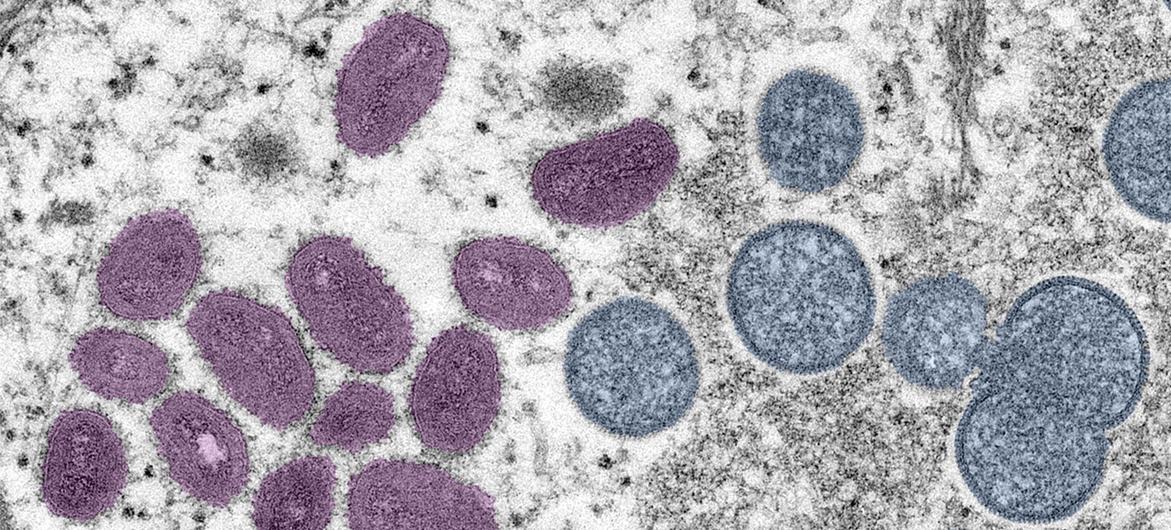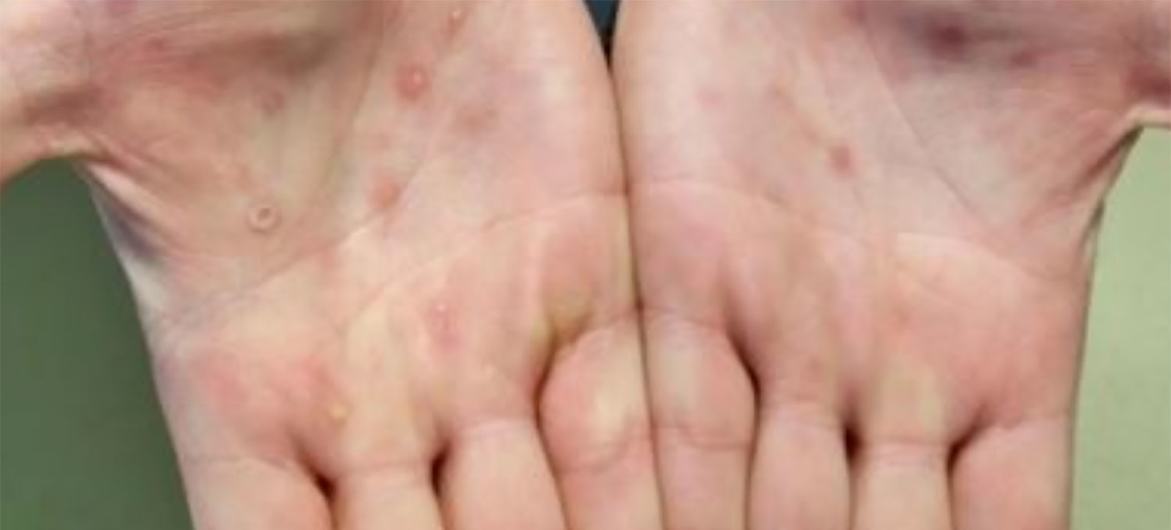Text by Henrylito D. Tacio
Photos: Centers for Disease Control and Prevention
Is monkeypox another coronavirus disease 2019 (COVID-19) in the making? Health authorities hope it won’t be but the World Health Organization (WHO) has already a global health emergency.
“For all of these reasons, I have decided that the global monkeypox outbreak represents a public health emergency of international concern,” Dr. Tedros Adhanom Ghebreyesus, WHO Director-General, announced last July 23.
Monkeypox is the third active public health emergency of international concern: COVID-19 still tops the list with polio trailing behind. On September 19, 2019, an outbreak of polio was declared in the Philippines.
According to Dr. Tedros, the current risk of monkeypox is moderate globally. “There is also a clear risk of further international spread, although the risk of interference with international traffic remains low for the moment,” he said.
Currently, there are more than 16,000 reported cases from 75 countries and territories and five deaths. Some 81 children under the age of 17 were reported as having been infected globally with most cases being among young men, with the median age being 37.
Monkeypox is a viral zoonosis, a virus transmitted to humans from animals. Various animal species have been identified as susceptible to monkeypox virus. This includes rope squirrels, tree squirrels, Gambian pouched rats, dormice, non-human primates, and other species.
“The natural reservoir of monkeypox has not yet been identified, though rodents are the most likely,” the WHO said. “Eating inadequately cooked meat and other animal products of infected animals is a possible risk factor.”
How will you know a person has monkeypox?
“Symptoms of monkeypox can be very similar to those experienced by smallpox patients, although they are less clinically severe, albeit visually dramatic, with raised pustules and fever in the most severe cases that can last from two to four weeks,” the WHO says.
According to the UN health agency, the recent monkeypox outbreak has been transmitted primarily by close skin-to-skin contact, although the virus can also be passed by breath droplets and contaminated bedding.
The incubation period of monkeypox is usually from six to 13 days but can range from five to 21 days.
“We don’t yet have the information as to whether (the monkeypox virus) would be transmitted through body fluids,” Dr. Rosamund Lewis, WHO technical lead on monkeypox, told journalists in a press conference.
First identified in monkeys, the virus is transmitted chiefly through close contact with an infected person. “At the moment the outbreak is still concentrated in groups of men who have sex with men in some countries, but that is not the case everywhere,” said Dr. Lewis. “It is really important to appreciate also that stigma and discrimination can be very damaging and as dangerous as any virus itself.”
The WHO explained that although most cases of infection have been linked primarily to men who have sex with men, this is probably because they are more proactive in seeking healthcare advice than others.
The disease “can affect anyone and (it) is not associated with any particular group of people,” Dr. Lewis reminded.
Complications of monkeypox can include secondary infections, bronchopneumonia, sepsis, encephalitis, and infection of the cornea with ensuing loss of vision, the WHO said.
“The case fatality ratio of monkeypox has historically ranged from 0 to 11% in the general population and has been higher among young children,” the WHO said. “In recent times, the case fatality ratio has been around 3-6%.”
The clinical differential diagnosis that must be considered includes other rash illnesses, such as chickenpox, measles, bacterial skin infections, scabies, syphilis, and medication-associated allergies. Lymphadenopathy during the prodromal stage of illness can be a clinical feature to distinguish monkeypox from chickenpox or smallpox.
“If monkeypox is suspected, health workers should collect an appropriate sample and have it transported safely to the laboratory with appropriate capability,” the WHO pointed out. “Confirmation of monkeypox depends on the type and quality of the specimen and the type of laboratory test. Polymerase chain reaction (PCR) is the preferred laboratory test given its accuracy and sensitivity.”

In the past, vaccination against smallpox provided protection against monkeypox. But people younger than 40 to 50 years of age today, according to WHO, “may be more susceptible to monkeypox infection as smallpox vaccination campaigns ended globally after the disease was eradicated in 1980.”
In the Philippines, the Vaccine Expert Panel said vaccines for monkeypox remain limited. A report said that “only smallpox and a recently-developed ‘live-attenuated’ vaccine for monkeypox are for the moment approved to fight the viral disease.”
In a televised briefing, expert panel head Dr. Nina Gloriani said: “Ang monkeypox and smallpox are under one family… (Ang vaccine para dito) ay hindi available for the general population. Kulang din ang stockpile niya.”
Although the Philippines has yet to detect a case of monkeypox, the health department is currently working with international health agencies to secure monkeypox vaccines.
“When someone is vaccinated it takes several weeks for the immune response to be generated by the body,” Dr. Lewis said.

